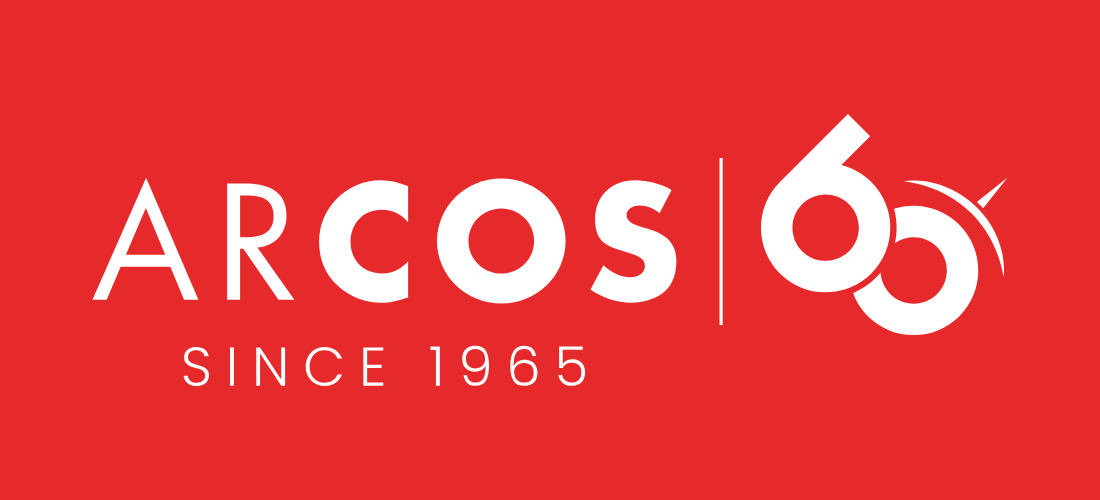The industrial ecosystem is experiencing an incredible transition due to the advent of industry 4.0. Companies are now realizing how necessary it is to adapt to the new modern paradigms, thanks to the introduction of new technologies and the advancement of increasingly demanding and attentive markets to production methods.
This fourth industrial revolution requires companies to have an intensive and greater production than the previous ones, but at the same time able to respect the available resources by reducing waste. For this reason, robotic systems have become the symbol of this change: their ability to reproduce human work and to guarantee identical and repeatable results over time, allows not only to increase daily production, but also to eliminate waste due to errors in manual processing. In fact, robotic systems are increasingly used to replicate those jobs done manually, which are not very rewarding and alienating, such as finishing surfaces.
In this article, Arcos introduces the new robotic finishing systems, developed to allow companies to leverage this change to lower internal costs, increase revenue and outpace the competition.
Table of Contents
Surface finishing according to Arcos
Polishing, grinding, satin finishing and deburring are the main processes for which Arcos has specialized and for which it has designed specific automated machines. The technologies developed by Arcos for surface finishing are all characterized by the possibility of being customized according to the production purpose.
The reliability and versatility of Arcos machines has merged with the needs of the most important industrial markets such as aeronautics, automotive, energy, Oil and Gas, medical, and luxury more generally, and as a response, robotic cells and rotary tables of Arcos.
The robotic cells are units which inside there is a robotic arm that grabs, processes and moves the piece. Depending on the needs, can be installed units equipped for the necessary finishes, rotating tables for the manual loading-unloading of the pieces or conveyor belts for automatic transport, alternative machining centres with multifunction robots, units for washing or drilling and any other necessary element, existing or specially designed and created, for the required processing.
Each robotic cell is built with the best and reliable safety systems, in fact, it also has soundproofed and aspirated protection cabins, while the supervision of the machine work is entrusted to the HMI – Human Machine Interface system, i.e. via display, control panels , computer etc.
Thanks to the collaboration between the engineers, the designers and the customer, Arcos studies and designs the robotic programming of the production cycle and creates highly customized robotic cells integrated with the customer’s production reality. This versatility makes robotic cells the most requested and suitable solution for industry 4.0.
Arcos rotary tables are designed for machining metal objects with not very complex geometries, but which require a significant increase in productivity. Thanks to the work units organized around a rotary table and to the simultaneous processing of the working phases, a significant reduction in the cycle time is obtained compared to that carried out manually. They differ in continuous rotary tables and Indexed – CNC Rotary table.
The first one are made to be able to work autonomously and with ease of use thanks to the continuous rotation of the table and its workpiece holders: the cleaning units placed around the table are designed according to the need for finishing and equipped with several axes with electrical or controlled movement.
The second one are suitable for more complex and precise processing but still require high productivity, although slightly lower than continuous ones. In this case, the rotary table has a rotation in several phases, in jerks, to allow more precise machining. It is possible to equip the work unit with CNC or CN control to carry out more complex applications, that is through numerical control machines that speed up and make processing more precise.
In Conclusion
Thanks to the introduction of intelligent machines in factories, countless benefits can now be found for the company that installs them, starting with the ability to obtain all the information necessary in real time to overcome any production impasse. Furthermore, the more the machines are interconnected, the higher will be their ability to communicate and prevent malfunctions. This is why Arcos designs its machines and systems in order that they can be integrated with other existing systems or subsequently installed.
Arcos has developed robotic cells and rotary tables to allow safe production both in terms of numerical productivity and for the health of operators who will no longer have to work in contact with potentially dangerous equipment. Thanks to these machines it will be possible to obtain precise and replicable results quickly over time and although the robotic activity requires a high initial budget, there is a tangible and high yield return on investment.
To facilitate optimal integration of robotics within the production process, Arcos offers a training service aimed on the skills and needs of the team that will have to work in contact with the machine and take care of its operation. In addition, it offers an in-person and remote assistance service, from its installation to any unforeseen emergency.
If you would like to optimize the finishing process, making it homogeneous and repeatable, ask to the Arcos team. Thanks to your production history, you will be able to design the best robotic finishing systems for your business.



